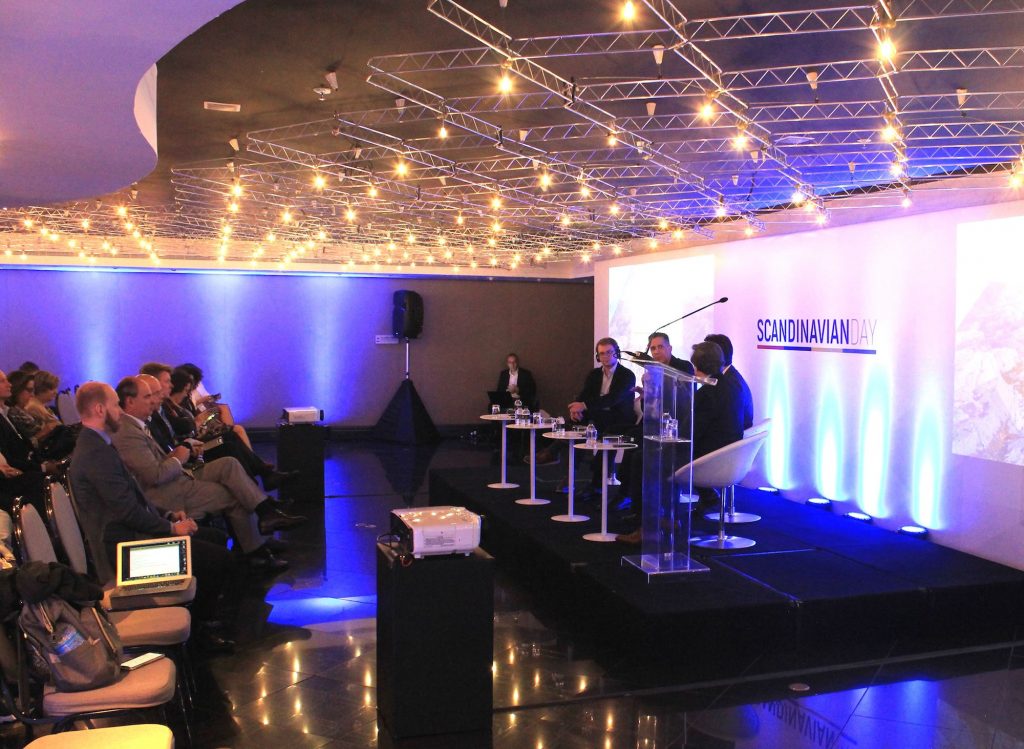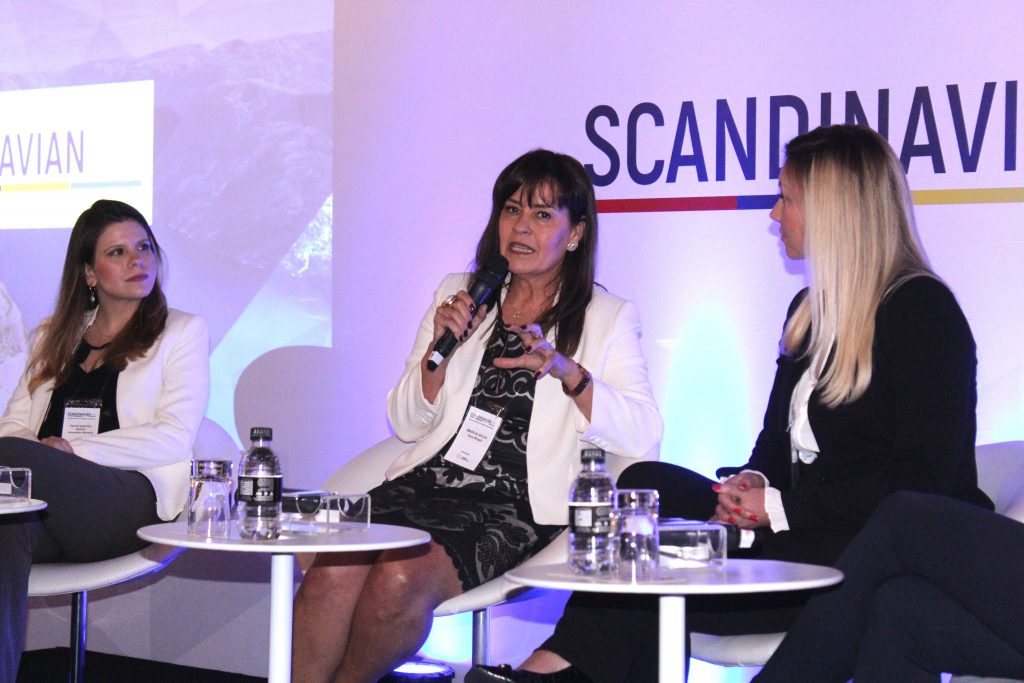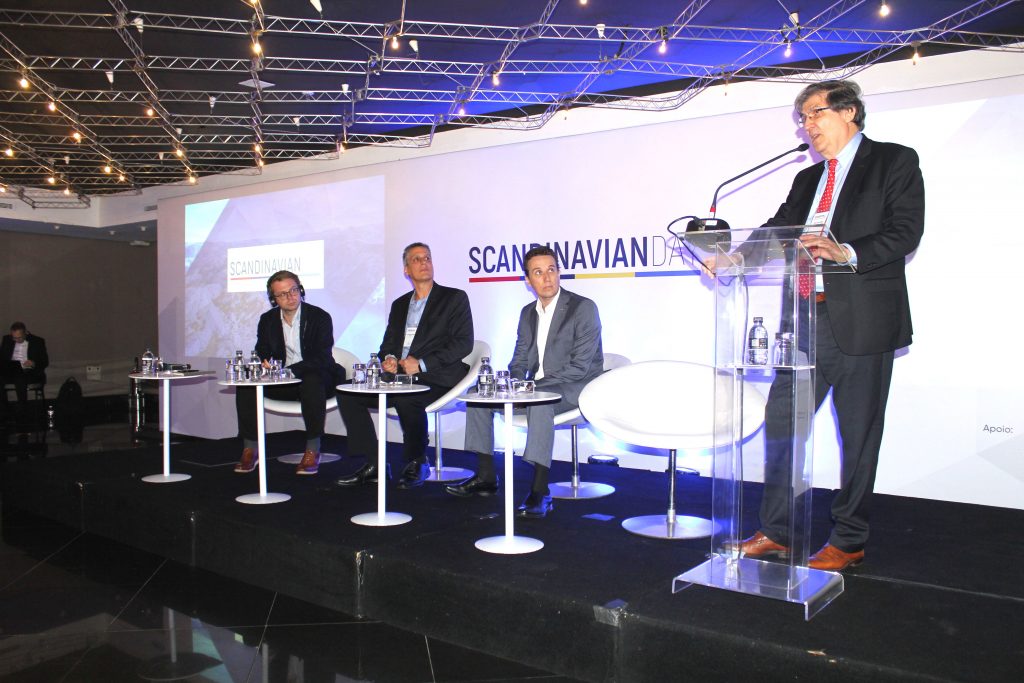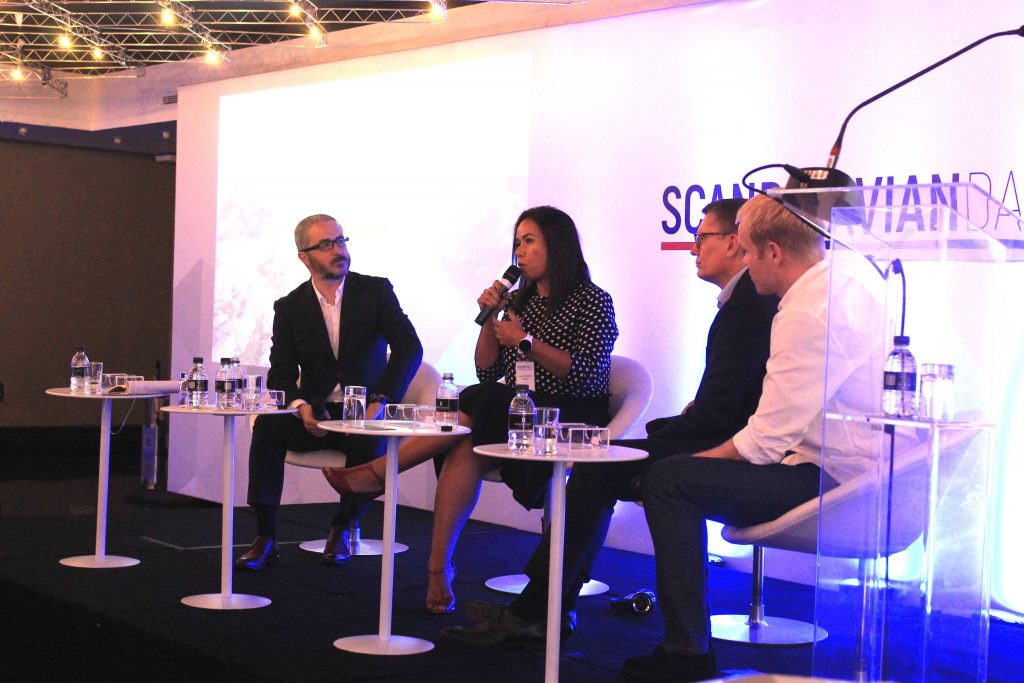
For the second time, the event Scandinavian Day showcased best practices from the Scandinavian countries to business executives, civil society organizations, authorities and other stakeholders from both private and public sector.
Scandinavian Day was created as an arena for dialogue and for the sharing of experiences and best practices from the Scandinavian countries. The event is organized by Imagem Corporativa, with the support of NBCC, the embassies of the Scandinavian countries as well as other chambers of commerce.
Adding value
This year´s event took place in São Paulo on November 6, 2019, and was divided in panels that addressed different topics through a dialogue between the panelists. Gender equality and diversity are among the values that Scandinavian countries and their practices are internationally recognized for, and one of the panels during the event was dedicated to this important subject. According to a study from McKinsey, companies with women on the board of directors perform 40 percent better than companies with no women on the board.
«It is more productive to have women in leadership positions, but even Norwegian companies can improve, and next year, Innovation Norway will launch guidelines on how to develop equality strategies, to provide the companies with better tools and better support them in the process of becoming more diverse», says Pilar Neves, Innovation Norway Project Manager.
The panel was composed by Ms. Neves, by Marcia Silva, Director of Operations at Yara, Ida Killingberg, of Equinor and Nokia Director Gabriela Fernandes.
Norwegian fertilizer giant Yara has 7000 employees in Brazil.
«We made a diagnostics of our operations and saw the need for policies to reduce prejudice in a male dominated working environment. We started with educational programs and created working groups and agents of diversity to disseminate the topic of gender equality but also diversity on other levels, like LGBT and racial diversity. In my view, it is not sufficient to invite someone to a party, but you also need to dance, all night if possible», said Marcia Silva, Director of Operations at Yara.

As a result, uniforms at Yara have been adapted to both genders, restrooms reformed and flexible working hours are now being offered to employees.
Equinor executive Ida Killingberg shared Equinor´s approach to diversity, an approach which is adapted to each country where Equinor has operations.
«These are values in the heart of our culture. Embracing diversity and making sure that everyone feels included is a fundamental part of our culture. We value diversity, and believe it to be essential to success. We measure not only gender, but also age, nationality and experience and managers will be held accountable to strengthen the diversity of their teams. We need to talk about diversity in a broad sense, and at Equinor we believe that diversity and an inclusive business culture adds value and that it will result in better results business wise, in more innovative solutions.»
The oil and gas industry is still a male dominated industry, and only 30 percent of the Equinor workforce is female.
«We are working to increase the percentage, to motivate women internally in the organization, to become platform managers for example. In Norway, 18 percent of our platform managers are female. Globally we have implemented recruitment targets on gender. It is not easy but an ambition. It is also about availability in the market.»
HR Director Gabriela Fernandes at Finnish tech giant Nokia talked about a recent pay audit conducted by Mercer, that found a pay gap that could only be explained by the gender of the employee.
«Finland was the first country that gave the right to vote and to candidate to women, but there are still salary differences in the labor market. Nokia promotes diversity, not only because of the social aspect of it, but also because we believe that diversity will provide us with an advantage business-wise.»
Quest for the Sustainable
On a panel on innovation and sustainability, the CEO of a Finnish think tank and representatives of the food industry and the energy sector debated strategies and experiences. Icelandic Marel is in the food processing business – advanced processing of poultry, meat and fish in a more sustainable and affordable way. Clausius Nobrega, Director Latin America of Marel, shared how Marel works to improve sustainability of operations, like reducing the use of water. «Innovation is in our DNA», he said.
«We need a society ready for innovation – innovation where we combine best practices multiplying the benefits for society, not only inside private entities. Something which is changing rapidly is consumption, and we see an increasing demand for innovation in the agricultural sector due to the search for sustainable food products», says Juha Leppänen CEO of the think tank Demos Helsinki.
Jonathan Colombo, Manager of Institutional Relations of Vestas Wind Systems, provided the seminar with a different approach and talked about the huge potential of aeolic energy. Vestas design, manufacture, install, and service wind turbines across the globe.
«Today there are limits on growth in Brazil, because we are in the middle of an energy transition. There are limits, but not limitations on growth in innovation and sustainability», he said.
The panel also discussed how to attract talent.
«An important skill for executives in the future is the ability to communicate the purpose of what you are doing», said Juca Leppänen

Inspiring debates
Other panels addressed Information, Culture and Democracy and Transparency and Compliance. Paula Pereira, Senior Compliance Officer at Statkraft (in the photo below), emphasized the importance of having systems and procedures in place. Transparency and open doors were some key concepts brought to the debate by Olle Widén, CEO of FinanZero. Other inspiring ideas and practices that could serve as an inspiration were also addressed by the panel.

By Runa Hestmann, NBCC journalist
(runa.tierno@nbcc.com.br)
:

